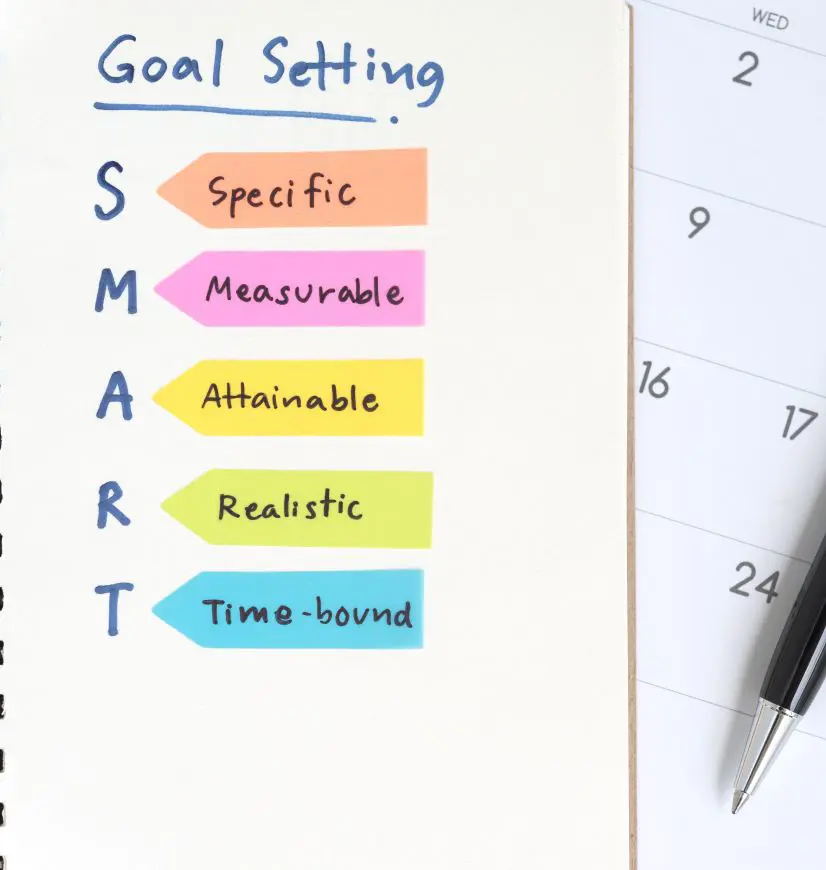Type B Personality: Traits, Definition, And Examples

You may have heard a lot about Type A personality, but what about those who have Type B personality? While Type A individuals are known for their competitiveness and urgency, Type B personalities bring a different vibe to the table.
They are often more relaxed, easygoing, and adaptable. These behaviors make them unique in how they approach life and relationships. In this discussion, we will explore the key traits that define Type B personalities, provide some real-life examples, and delve into what makes them special.
What Is Type B Personality?
A Type B personality is one of the two main types of personalities first described by psychologists Meyer Friedman and Ray Rosenman in the 1950s while studying stress and its effects on health. While Type A personalities are known for being competitive, ambitious, and often stressed, Type B personalities are more relaxed, patient, and easy-going.
In addition, people with Type B personalities tend to enjoy life at a slower pace, prioritize relationships, and maintain a balanced outlook on life.
Key Traits Of Type B Personality
Type B personalities exhibit several distinctive traits that set them apart. Here are some of the most common characteristics:
1. Relaxed Attitude
Type B individuals are known for their laid-back approach to life. They do not rush through tasks and prefer to take their time to ensure they are done well.
2. Low Stress Levels
One of the most defining features of Type B personalities is their ability to maintain low-stress levels, even in challenging situations. This helps them to remain calm and composed. Plus, helps in better health.
3. Flexibility
This is another addition to the type b personality characteristics. This personality people are adaptable and open to change, which allows them to navigate various situations without becoming overwhelmed.
4. Creativity

Type B personalities often have a creative side. They enjoy exploring new ideas and solutions, which can lead to innovative outcomes.
5. Emotional and Expressive
They tend to be more in touch with their emotions and are often expressive about their feelings, making them relatable and approachable.
6. Tendency to Procrastinate

On the downside, Type B individuals may struggle with procrastination. Their relaxed nature can sometimes lead to delays in completing tasks.
7. People Pleasers
They often prioritize harmony and may go out of their way to please others, which can lead to neglecting their own needs.
The Benefits Of Having A Type B Personality
There are several advantages to having a Type B personality, especially in today's fast-paced world. Here are some of the benefits:
1. Better Health
Because Type B individuals experience less stress, they often enjoy better physical and mental health. Lower stress levels reduce the risk of stress-related illnesses such as high blood pressure, heart disease, and anxiety.
2. Strong Relationships

The easy-going and patient nature of Type B personalities makes them great friends, partners, and colleagues. They are empathetic listeners and are more likely to maintain long-lasting, healthy relationships.
3. Lower Stress Levels
One of the most significant benefits of being a Type B personality is the ability to manage stress effectively. Type B individuals tend to remain calm in high-pressure situations. This calmness helps them complete their work efficiently and sets a positive tone with everyone.
4. Enhanced Creativity
Type B personalities often possess a creative flair. Their relaxed approach allows them to think outside the box and come up with innovative solutions. Their creativity can lead to breakthroughs in any work and inspire others to explore new possibilities.
5. Adaptability to Change
These individuals are typically more adaptable to change than their Type A counterparts. They can adjust their plans and strategies without becoming disturbed.
6. Better Work-Life Balance
Type B personalities often prioritize personal well-being alongside professional achievements. They understand the importance of taking breaks and enjoying life outside of work. They might make time for hobbies, family, and relaxation.
7. Patience and Tolerance
These individuals tend to be more patient and tolerant than Type A personalities. They are less likely to feel rushed or frustrated by delays and obstacles. Their patience can create a more positive atmosphere in both personal and professional settings.
8. Strong Problem-Solving Skills

Due to their calm and creative nature, Type B personalities often excel at problem-solving. They can approach challenges with a clear mind and think critically about possible solutions.
9. Encouragement of Team Dynamics
In team settings, Type B personalities can help foster a collaborative environment. Their easy-going nature encourages open communication and idea-sharing among team members.
Potential Challenges For Type B Personalities
While Type B personalities have strengths, they may also face specific challenges that can impact their personal and professional lives. Understanding these potential difficulties can help Type B individuals navigate their environments more effectively. Here are some of the key challenges associated with Type B personalities:
1. Procrastination
One of the most common challenges for personality type b individuals is procrastination. Their relaxed nature can lead to a tendency to delay tasks, especially when there is no immediate pressure or deadline. This procrastination can affect their productivity and lead to missed opportunities.
2. Lack Of Urgency
Type B personalities often approach tasks without a strong sense of urgency. While this can be beneficial in reducing stress, it may also result in slower progress on projects.
3. Difficulty with Time Management

Many Type B individuals struggle with time management. Their relaxed attitude may cause them to underestimate how long tasks will take or to overlook deadlines.
4. Lower Competitive Drive
Type B personalities typically do not have the same competitive drive as Type A individuals. While this can foster a collaborative environment, it may hinder their career advancement. For instance, in a competitive workplace, a Type B employee might miss out on promotions or opportunities because they are less inclined to advocate for themselves or push for recognition.
5. Challenges in High-Pressure Situations
Although Type B individuals are generally calm, they may struggle in high-pressure situations where quick decision-making is required. For example, during a crisis, a Type B person might take too long to analyze the situation, leading to missed opportunities or ineffective responses. Their tendency to prioritize a thoughtful approach can be a disadvantage in fast-paced environments.
6. Overly Accommodating Nature

As we know, Type B personalities are often people pleasers, which can lead to challenges in asserting their own needs. They may prioritize harmony and consensus over their own preferences. This habit results in feelings of resentment or being taken advantage of.
7. Potential for Complacency
The relaxed nature of Type B personalities can sometimes lead to complacency. They may become comfortable in their routines and resist change or new challenges. For example, Type B employees might avoid pursuing new skills or responsibilities, which can limit their growth and career development.
8. Difficulty in Leadership Roles
While Type B individuals often excel in teamwork, they may face challenges in leadership positions. Their easy-going nature might be perceived as a lack of decisiveness or authority. For instance, a Type B manager might struggle to make tough decisions or enforce deadlines, leading to confusion among team members about expectations.
Examples Of Type B Personality Traits In Action

To better understand what it means to have a Type B personality, let's look at some examples:
- The Easy-Going Friend: Imagine you have a friend who is always calm, no matter what is happening around them. They don't rush through life and are perfectly content with going along with whatever plans the group makes. This friend is likely to have a Type B personality.
- The Patient Parent: A Type B parent might handle the challenges of raising children with incredible patience. Instead of getting frustrated when things don't go as planned, they remain calm and offer understanding and support to their kids.
- The Creative Colleague: At work, you might know someone who approaches projects with a creative flair. They are not overly concerned with deadlines or being the best, but they consistently produce innovative ideas and are always willing to help others.
- The Laid-Back Traveler: When traveling, a Type B personality is the person who enjoys the journey as much as the destination. They don't stress over missed flights or changes in plans. Instead, they see these as opportunities to explore new experiences.
To better understand Type B personalities, here are some examples of well-known individuals who embody these traits:
- Matthew McConaughey: The actor is known for his laid-back demeanor and often emphasizes the importance of enjoying life rather than rushing through it.
- Kristen Bell: This actress is recognized for her friendly and approachable personality, often portraying characters that embody a relaxed attitude.
- Mr. Rogers (Fred Rogers): The beloved television host was known for his calm, patient approach to children's programming, promoting kindness and understanding.
- Betty White: The late actress and comedian was known for her warm personality and ability to connect with people, reflecting Type B's sociable traits.
How To Embrace Your Type B Personality
Embracing your Type B personality means recognizing and celebrating your unique traits while also finding ways to manage any challenges that come with it. Let's explore some practical tips to help you embrace your Type B personality effectively:
1. Acknowledge Your Strengths
Start by recognizing the positive aspects of being a Type B personality. You are likely to be:
- Creative: You have a talent for thinking outside the box and coming up with innovative ideas.
- Easygoing: Your laid-back nature allows you to handle stress better than many others, making you a calming presence in tense situations.
- Great at Building Relationships: You are likely to have strong interpersonal skills. This makes it easy for you to connect with others.
2. Set SMART Goals

One of the challenges for Type B personalities is procrastination. To combat this, consider setting SMART goals-Specific, Measurable, Achievable, Relevant, and Time-bound. For example:
- Specific: Instead of saying," I want to get fit say, "I will exercise for 30 minutes three times a week."
- Measurable: Track your progress by keeping a journal or using an app.
- Achievable: Make sure your goals are realistic and attainable based on your current lifestyle.
- Relevant: Choose goals that align with your interests and values.
- Time-bound: Set a deadline to help create a sense of urgency.
3. Improve Time Management Skills
Since Type B personalities may struggle with time management, it is essential to develop strategies to manage your time effectively. Here are some tips:
- Use a Planner: Keep a planner or digital calendar to schedule your tasks and appointments. This will help you visualize your commitments and deadlines.
- Prioritize Tasks: Identify the most important tasks each day and focus on completing them first.
- Set Reminders: Use alarms or reminders on your phone to help you stay on track with deadlines.
4. Create a Comfortable Work Environment
Your relaxed nature thrives in a comfortable and inspiring environment. To embrace your Type B personality, create a workspace that reflects your style and promotes creativity. This could include:
- Personal Touches: Add photos, artwork, or plants that make you feel happy and inspired.
- Comfortable Furniture: Ensure your workspace is comfortable, with good seating and lighting.
- Quiet Space: If possible, find a quiet area where you can think and work without distractions.
5. Set Boundaries
Being a people pleaser is common among Type B personalities, which can lead to burnout. It is essential to set boundaries to protect your time and energy. Here are some ways to do this:
- Learn to Say No: Don’t be afraid to decline invitations or requests that don’t align with your priorities.
- Limit Social Interactions: Schedule downtime to recharge, especially if you feel overwhelmed by social obligations.
- Communicate Your Needs: Be open with friends and family about your need for personal space or time to focus on your goals.
6. Embrace Your Creative Side
Type B personalities often excel in creative endeavors. Make time for activities that allow you to express your creativity, such as:
- Art: Painting, drawing, or crafting can be therapeutic and fulfilling.
- Writing: Journaling, blogging, or writing stories can help you articulate your thoughts and feelings.
- Music: Playing an instrument or singing can be a joyful outlet for your emotions.
7. Practice Self-Care

Taking care of yourself is crucial for maintaining a healthy balance in life. As a Type B individual, prioritize self-care activities that help you recharge, such as:
- Exercise: Find a physical activity you enjoy, whether it’s walking, yoga, or dancing.
- Hobbies: Dedicate time to hobbies that bring you joy and relaxation.
- Meditation: Practice mindfulness or meditation to help reduce stress and improve focus.
How Type B Personality Affects Daily Life
Type B personalities significantly influence daily life in various ways, primarily through their relaxed and adaptable nature. Here are some key points:
1. Stress Management
Type B individuals generally experience less stress compared to Type A Personalities. Their easygoing attitude allows them to approach challenges without feeling overwhelmed. This leads to better overall health and well-being.
Likewise, they tend to handle stressors more effectively, which reduces the risk of stress-related health issues, such as anxiety and heart disease.
2. Work Environment
People with this personality thrive in flexible work environments. Their ability to go with the flow makes them valuable team members, especially in situations that require creativity and collaboration.
They often foster positive relationships in the workplace, as their relaxed demeanor encourages teamwork and cooperation. This can lead to a more harmonious work atmosphere.
3. Social Interactions

Type B individuals are typically good listeners and show empathy towards others. This quality helps them build strong interpersonal relationships and create a supportive social network.
They prioritize work-life balance, which contributes to their overall happiness and fulfillment. This perspective allows them to enjoy life's journey rather than just focusing on outcomes.
Difference Between Type A And Type B Personality
Individuals with Type A personalities are characterized by ambition and driven competitiveness, impatience, and high stress levels. In contrast, Type B personalities exhibit relaxed attitudes, flexibility, lower stress, and less competitiveness. Now, let's discuss the key differences between these two personalities:
- Approach to Work: Type A individuals often work hard and multitask, while Type B individuals prefer a more steady and relaxed pace.
- Stress Management: Type A personalities are more prone to stress, whereas Type B usually manage stress effectively and maintain a calm demeanor.
- Time Management: Type A individuals are punctual and organized, while Type B personalities are more flexible with time and deadlines.
- Health Implications: Type A individuals may face higher risks due to stress, while Type B individuals generally enjoy a more balanced lifestyle with fewer stress-related health issues.





